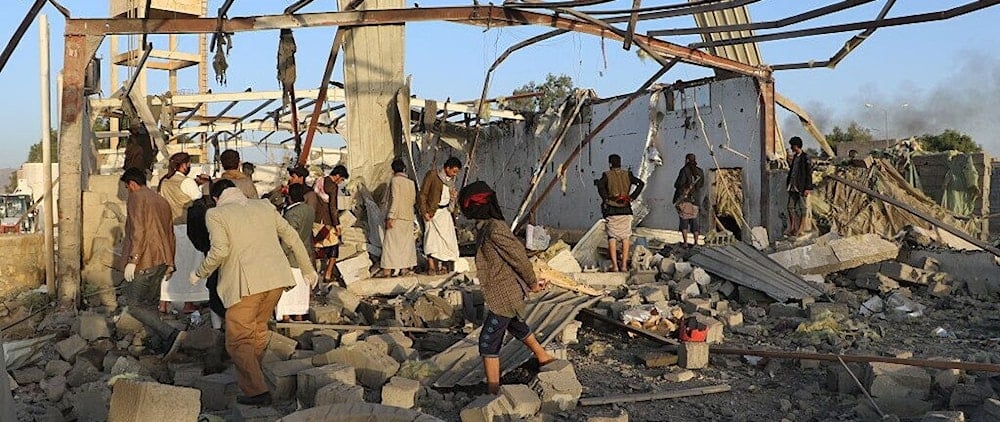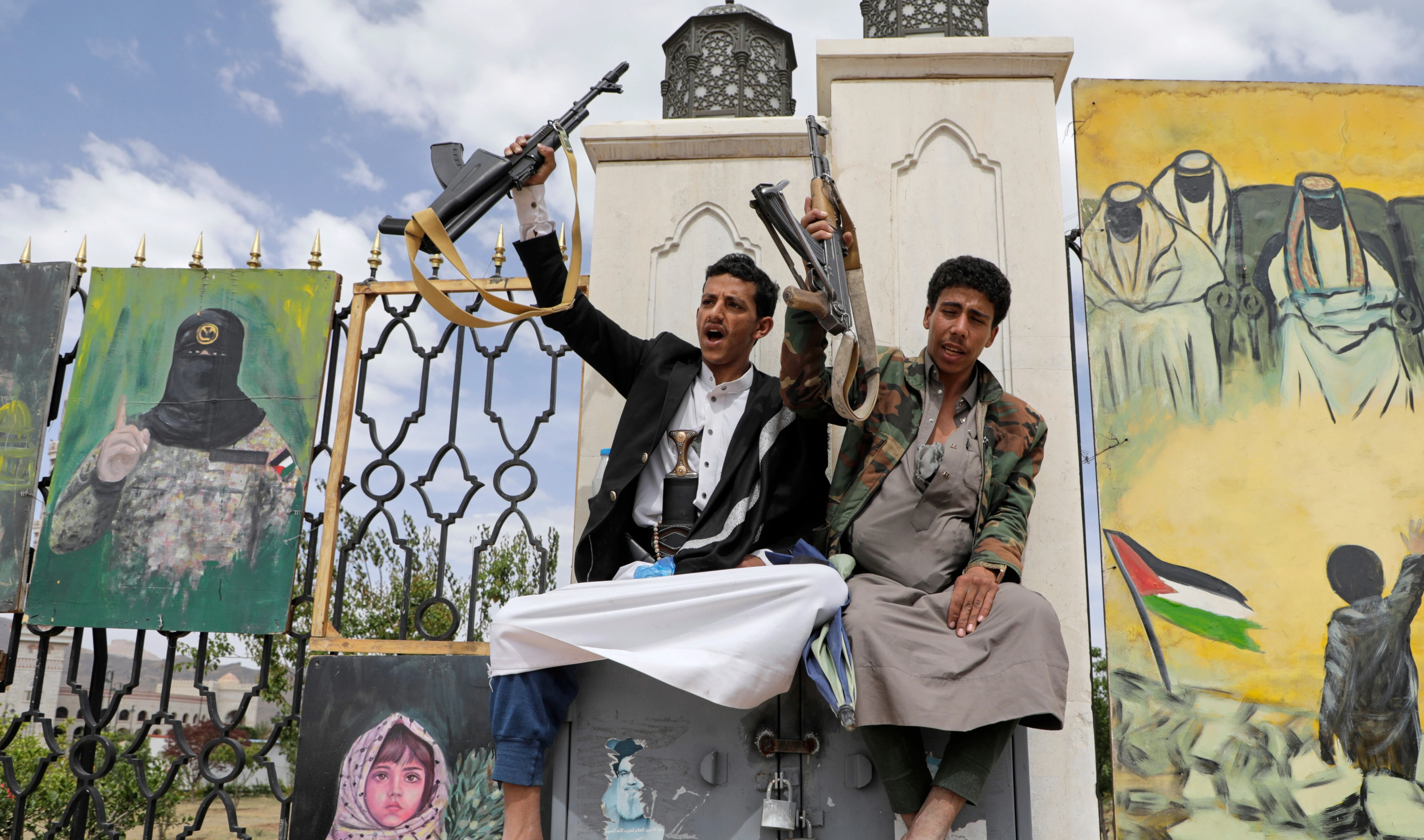Amnesty: US strike on Yemen prison may constitute war crime
Amnesty International says a US airstrike on a Yemeni prison in April that killed over 60 African migrants may be a war crime under international law.
-

Aftermath of the US air strike on migrant detention centre in Yemen on April 28, 2025 (AFP via Getty Images)
Amnesty International has called for an investigation into a US airstrike that hit a prison facility in Yemen's Saada province in April, killing over 60 detained African migrants. The rights group says the strike may constitute a war crime and adds to a growing list of US aggressions on Yemen under the ongoing military campaign known as Operation Rough Rider.
The airstrike, carried out on April 28, targeted a facility operated by the Sanaa government and known to house African migrants attempting to reach Saudi Arabia. Amnesty said its findings suggest the attack was likely an "indiscriminate strike," as there was no evidence of any military objective at the location.
“We take all reports of civilian harm seriously and are working to release the assessment results for Operation Rough Rider soon," US Navy Captain Tim Hawkins, spokesperson for Central Command (CENTCOM), told the Associated Press.
Amnesty urged accountability for what it described as a clear violation of international humanitarian law, noting that hospitals, prisons, and other civilian infrastructure must not be targeted unless directly used for military purposes, and even then, precautions must be taken to avoid civilian deaths.
Read more: Amnesty urges war crimes probe into Israeli devastation in Lebanon
US strike on Saada prison kills dozens of African migrants
Ansar Allah placed the death toll from the April strike at 61, slightly lower than the initial figure of 68. The detainees, most of them Ethiopian migrants, were attempting to transit through Yemen to reach the Gulf in search of employment.
Survivors interviewed by Amnesty stated that there were no armed fighters present inside the prison at the time of the attack. After the strike, debris believed to be from US-made 250-pound precision-guided GBU-39 bombs was found at the site.
“I didn’t actually believe that it was possible that the US would carry out an airstrike on the same compound, resulting in a significant level of civilian harm," Kristine Beckerle, Amnesty’s deputy Middle East and North Africa director, told AP. “It kind of defies belief that the US would not have known.”
No military target found, Amnesty says
The same prison complex had previously been struck in 2022 by the Saudi-led coalition, also in the context of military operations against Ansar Allah. That attack killed 66 detainees and wounded over 100 others, according to the United Nations.
The strike occurred as part of a broader US air campaign targeting Ansar Allah in response to their attacks on Red Sea shipping during the war on Gaza. While initial operations began under US President Joe Biden, the airstrikes escalated sharply under US President Donald Trump’s Operation Rough Rider.
Read more: US campaign against Yemen was 'costly', 'futile': National Interest
The campaign has reportedly struck over 1,000 targets, including power stations, oil depots, and mobile infrastructure. Civilian deaths, however, have been reported across several incidents, including an April strike on an oil depot that killed more than 70 people.
According to Airwars, a UK-based monitoring group, US airstrikes under Operation Rough Rider may have killed at least 224 civilians, nearly matching the total civilian death toll from over two decades of US operations in Yemen.
Civilian casualties mount amid unaccounted strikes
Despite mounting international concern, the US has yet to release a full accounting of the civilian impact from Operation Rough Rider. During testimony before Congress in June, CENTCOM's former commander, Gen. Michael Kurilla, promised that details about civilian casualties would be made public, a commitment that remains unfulfilled.
“One of the things that was relatively devastating is again you’re talking about people who left Ethiopia to travel to Yemen because they’re trying to get to the Gulf,” Beckerle told AP. “They have to have their family send money to them in Yemen to deal with the effects of the injury.”
With dozens dead and more wounded, Amnesty has reiterated its demand for transparency, reparations, and a credible, impartial investigation into what it considers one of the deadliest examples of US aggression on Yemen in recent years.
Read more: The US is failing in its aggression on Yemen

 4 Min Read
4 Min Read










